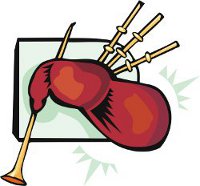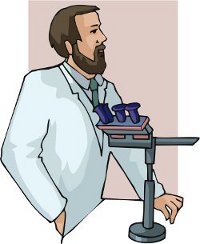English
Word Formation
Processes
Word formation processes are basically how new words are created and become part of the language.
There are quite a few of them, and we will now make the most important ones simple and clear.
Click Here for Step-by-Step Rules, Stories and Exercises to Practice All English Tenses
Knowing this can actually help you better understand the English language, not to mention the fact that knowing a word's origin is a great way to reinforce your understanding of it!
Borrowed words
 Borrowed
words are words that came to the English
language from another language.
Borrowed
words are words that came to the English
language from another language. It is a process where foreign words are gradually becoming part of the language.
In many cases, the foreign words adopt the sound and other characteristics of the language, and if used long enough, they can sound quite "native"!
Examples:
| Source language | Original
word (If the original meaning is different, then it is given in parenthesis) |
English word |
| Chinese | t'e | tea |
| Dutch | wagen | wagon |
| Old Norse | vanta | want |
| Old Norse | taka (grasp) | take |
| Latin | rapidus | rapid |
| Latin | plus (more) | plus |
| Latin | nervus (strength) | nerve |
| Old French | blanc (white) | blank |
| Norwegian | klover (skillful) | clever |
| Italian | spago (small cord) | spaghetti |
| Arabic | safar (journey) | safari |
| Greek | beugen (to bend) | bagel |
(Reference: The Heron Derivation Dictionary)
Affixes
 An affix is
a letter or group of letters that is added to the beginning or end
of a
word and changes its meaning.
An affix is
a letter or group of letters that is added to the beginning or end
of a
word and changes its meaning. Examples:
- healthy => un + healthy = unhealthy
(un is the
affix)
- fear => fear + less = fearless
(less is the affix)
There are two kinds of affixes:
prefixes and suffixes.
When the letter or group of letters is added to the beginning of a word, we call it a prefix.
Examples:
- unhappy
- overconfident
- ultraviolet
- underdeveloped
When the letter or group of letters is added to the end of a word, we call it a suffix.
Examples:
- careful
- secretly
- greatness
- teacher
In English, many new words were formed from existing ones by adding affixes to them.
Some even have several affixes added, such as:
care => careless => carelessness
Some words were formed exactly the other way around. The affixes were removed from existing words.
For example, the affix "or" was removed from the word "editor," and so we got the verb "edit":
- editor => editor => edit
Converting
By "converting" we mean changing the function of a word
without changing its form.For example, nouns that start to be used as verbs.
Examples of NOUNS that turned into VERBS:
| Original word noun | New word verb |
| We had a long talk. | They like to talk for hours. |
| Can you buy me a drink? | Don't drink that! |
| She finally got a divorce. | I heard they are divorcing. |
| That dress was amazing. | He likes the way she dresses. |
| I wrote you an e-mail. | He e-mailed me several times. |
Combinations
 In English many words are formed by joining parts of two or more
existing words.
In English many words are formed by joining parts of two or more
existing words.Examples:
- bag + pipe = bagpipe
- smoke + fog = smog
- spoon + fork = spork
- motor + hotel = motel
Or, by combining full words, and not just their parts:
Examples:
- foot + ball = football
- black + board = blackboard
- with + out = without
- be + have = behave
Clipping
 Clipping
is
the shortening of longer words.
Clipping
is
the shortening of longer words. In some cases the front is removed, in some cases the back is removed, and in some other cases both are removed!
Examples:
- advertisement => advertisement
=> ad
- examination => examination
= exam
- doctor => doctor
= doc
- airplane
=> airplane
=> plane
- telephone
=> telephone
=>
phone
- popular music
=> popular
music
=> pop
- influenza => influenza => flu
Acronyms
 An acronym
is a word made up from the first letters of the words that make up
the
name of something.
An acronym
is a word made up from the first letters of the words that make up
the
name of something.Examples:
- NASA
(National Aeronautics
and Space Administration)
- NATO
(North Atlantic
Treaty Organization)
- Interpol
(International
Criminal Police
Organization)
- radar (Radio Detection And Ranging)
Totally new
 Some words were simply invented.
Some words were simply invented. Meaning, somebody creates the word, and people start using it.
This can be necessary when scientists invent or discover something new that didn't exist before, when technology advances, or when a company comes up with a new product.
In many cases science fiction an fantasy writers invent new words, as well.
Examples:
- radioactive
- Celsius
- Kleenex
- diesel
- hobbit
- Internet
- blog
Word formation processes final words
Understanding the different word formation processes helps us thoroughly understand the creation of the English vocabulary.But you can take it a step further. By taking individual words and looking into their actual origin, you can achieve a more complete understanding of them.
To learn more about building a wide vocabulary with the help of word origins, read the Basic Study Manual.
See Also
Get Updates, Special Offers, and English Resources
Download your FREE GIFT (the first two chapters of
English Short Stories Book and Workbook)
as soon as you join!

By submitting your email, you consent to receiving updates and newsletters from us and to the sharing of your personal data with third parties for the purposes of sending you communications. We will not spam you. You can unsubscribe at any time. For more information, please see our privacy policy.
Return
from
English Word Formation Processes
to Vocabulary Activities
Return
from
English Word Formation Processes
to Really Learn
English Home





